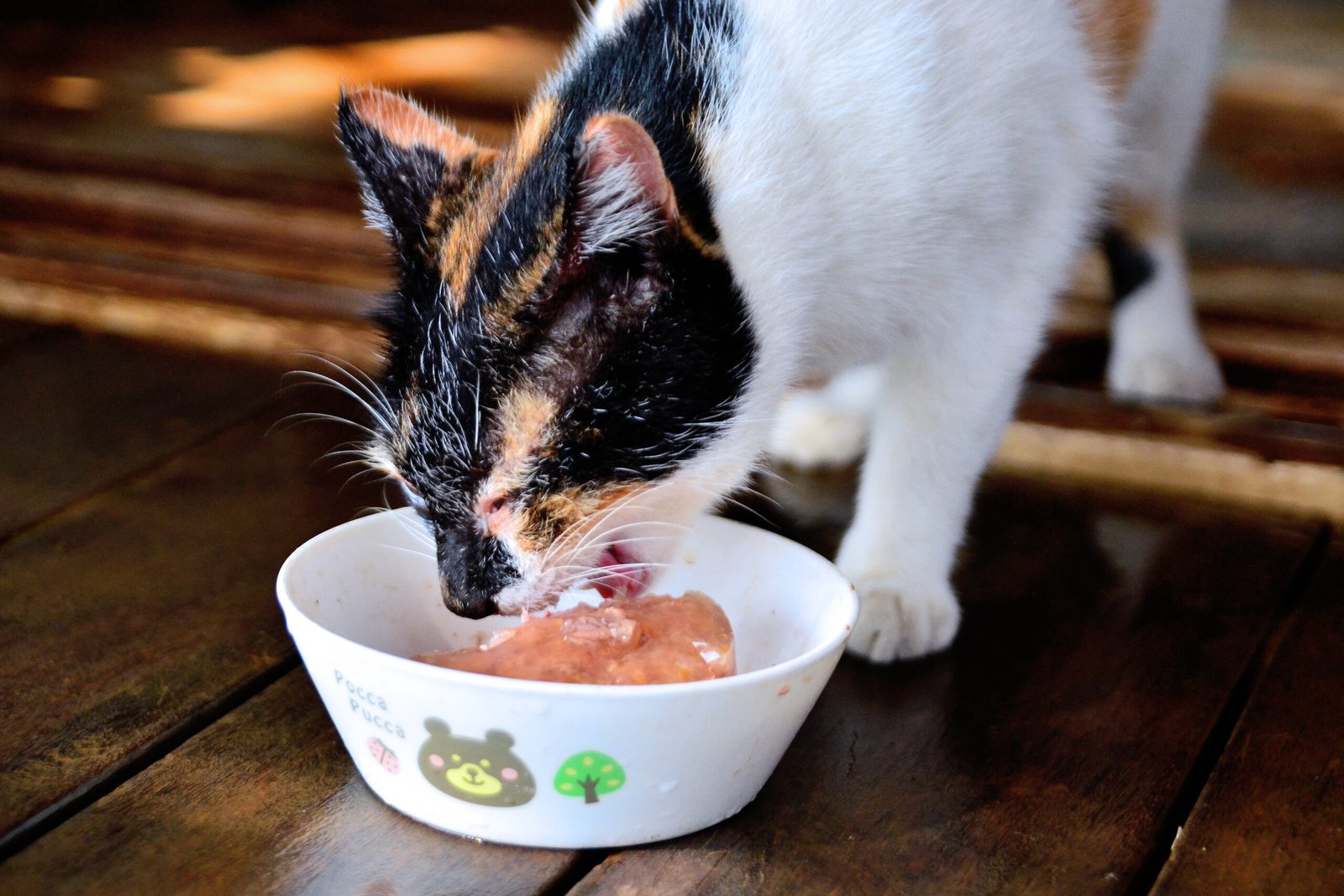Is tuna safe for cats?
Tuna can be safe for cats if it is properly cooked without any salt or other seasonings. However, it should not be given to cats in large quantities or regularly, as this can cause nutritional imbalances and mercury poisoning. If you want to give tuna to your cat, make sure it is plain and well-cooked, and offer it occasionally as a treat in moderation.
Can cats eat tuna every day?
Cats should not be given tuna regularly. Although tuna is tasty and safe for cats, eating too much can cause nutritional imbalances. Since tuna contains a high amount of mercury, feeding it to cats regularly can lead to mercury poisoning. Additionally, tuna lacks essential nutrients like taurine, which are important for cats’ health. If you want to give your cat tuna as an occasional treat, that’s fine, but feeding tuna in large amounts or on a regular basis is not recommended.
What are the risks of feeding tuna to cats?
Although tuna can be a safe food for cats, it often comes with many risks. Let’s explore the potential issues a cat may face from eating tuna.
- Generally, tuna contains a high amount of mercury, which can be harmful to a cat’s health. If cats are regularly fed tuna or consume it frequently, it can lead to mercury poisoning over time.
- Tuna also lacks many essential nutrients like taurine, calcium, and vitamin E, which are crucial for a cat’s health. Therefore, including tuna as a regular part of a cat’s diet is not a good decision.
- Typically, cats are more attracted to fish, especially tuna, which is a favorite for most cats. This could be due to the strong smell or taste of tuna, which is enough to make cats addicted. As a result, cats may refuse balanced food or other meals, leading to a lack of necessary nutrients in their bodies.
- Tuna may contain enzymes that destroy thiamine (vitamin B1), which can lead to issues like seizures in cats.
- There are many canned tuna products on the market that may contain ingredients like salt or preservatives, which can be harmful to a cat’s health.
Therefore, giving tuna to cats occasionally as a treat is fine, but if it is given regularly or in large quantities, they will naturally suffer from various health problems. So, try to give it to your cat in moderation.
Is tuna good for cats?
Although tuna is a safe food for cats, it should only be used as an occasional treat. This is because tuna generally lacks many essential nutrients, such as taurine, vitamin E, and calcium, which are very important for a cat’s health. Therefore, it should not be included as a regular part of their diet or given in large quantities. Additionally, since tuna contains a high amount of mercury, if cats eat too much, they may suffer from mercury poisoning or nutritional imbalances. If you are thinking of giving tuna to your cat, it’s better to offer it in small amounts occasionally, but make sure it is plain and cooked. Avoid giving raw tuna to cats.
How much tuna can a cat eat?
Although tuna is a favorite food for cats, it should only be used as an occasional treat in moderation. This is because tuna lacks many essential nutrients, making it unsuitable as a regular meal or in large quantities. If you want to give tuna as a treat, it’s best to offer one to two teaspoons, one to two times a week. Eating too much tuna can lead to mercury poisoning or nutritional imbalances in cats. However, before adding tuna or any other fish to your cat’s diet, it is advisable to consult a veterinarian.
Can cats eat canned tuna in water?
If we are talking about canned tuna in water, then yes, cats can eat it. However, remember that tuna should always be given to cats as an occasional treat. Too much tuna can lead to health problems for cats. Also, avoid giving cats canned tuna that contains salt, oil, or other seasonings, as these ingredients can be harmful to their health.
Can cats eat tuna in oil?
Generally, plain and cooked tuna is acceptable for cats, but tuna in oil should not be given to them. This is because oil can cause digestive issues in cats, leading to problems like vomiting, diarrhea, or stomach pain. Additionally, tuna lacking essential nutrients can lead to nutritional imbalances if cats eat too much.
Always choose canned tuna for cats that does not contain salt, oil, or other seasoning ingredients. Tuna packed in water is safe for cats, but it should only be used as an occasional treat.
Can kittens eat tuna?
Kittens can eat tuna, but it should always be given as an occasional treat. Because tuna lacks many essential nutrients, it should not be given to kittens regularly or in large amounts. Proper nutrition is crucial for the healthy growth and development of kittens, and tuna does not provide the necessary nutrients. Additionally, too much tuna can have a negative impact on a kitten’s health. Before giving tuna to kittens, ensure it is plain and cooked, without any salt, oil, or other seasoning ingredients. However, I think it is important to consult a veterinarian before giving tuna to your kitten.
Does feeding tuna cause mercury poisoning in cats?
Feeding tuna to cats can cause mercury poisoning, but this is if it is given in excessive amounts. Additionally, tuna contains more mercury compared to other fish. However, if you give your cat tuna occasionally and in small amounts, it may not cause harm. Therefore, avoid giving large amounts of tuna to cats. You might consider choosing commercial cat food that includes tuna in safe amounts to meet your cat’s fish needs. If you want to know about safe fish alternatives for your cat, consult a veterinarian if necessary.
What are the signs of tuna addiction in cats?
Although tuna is considered a favorite food for many cats, it is often seen that cats become addicted to tuna due to its strong smell and taste, showing various signs of addiction. Let’s look at the signs:
- If a cat becomes addicted to tuna, it will often demand tuna and may try to steal it or become frustrated if it is not given.
- An addicted cat may prefer to eat only tuna as a regular food and refuse to eat other foods.
- When a tuna-addicted cat does not get tuna in time, it may exhibit irritability or restlessness.
- Cats addicted to tuna may face various health problems due to excessive tuna consumption, such as vomiting, diarrhea, obesity, mercury poisoning, and other issues.
Since tuna lacks essential nutrients, it should not be included as a regular part of a cat’s diet. Therefore, you should give your cat tuna occasionally and in small amounts to prevent addiction.
Can cats eat tuna with bones?
Bones in tuna can pose risks for cats, as eating tuna with bones can lead to choking or injury to the mouth, throat, or digestive tract. Therefore, ensure that the tuna given to cats is bone-free and cooked. It is also important to remember that tuna should always be given to cats as an occasional treat.
Is it okay to give tuna as a treat for cats?
It is safe to give tuna as a treat for cats. Since tuna lacks essential nutrients, it should not be given in large quantities or regularly, as it can lead to mercury poisoning or nutritional imbalances. Therefore, it is best to offer tuna in small amounts as a treat. Before giving tuna as a treat, ensure it is plain and cooked.
Can cats eat flavored tuna (e.g., with garlic or onion)?
Cats should never be given flavored tuna that contains onion, garlic, or other spices, as these are toxic to cats even in small amounts. These spices in tuna can damage a cat’s red blood cells, potentially leading to anemia.
Therefore, choose tuna for cats that does not include flavoring ingredients like onion, garlic, or other spices. It should be offered as an occasional treat, as too much tuna can lead to mercury poisoning or nutritional imbalances.
What is the best way to feed tuna to cats?
If you are considering giving tuna to your cat, there are a few things to keep in mind:
- If you choose to give canned tuna, select a safe, commercially prepared option. Ensure that the tuna is packed in water and not seasoned with salt, oil, or other spices.
- Avoid giving raw tuna, as it may contain harmful bacteria and parasites that can make your cat sick.
- Ensure that the tuna you give to your cat does not contain bones, as bones can cause choking or injury to the throat or intestines.
- Cats should be offered tuna occasionally and in moderation as a treat. Since most cats like tuna, if given in large amounts or regularly, they might refuse other nutritious foods and suffer from nutritional imbalances.
- Tuna contains high levels of mercury, so if given regularly, it can lead to mercury poisoning over time. Therefore, it should be offered in very small amounts.
If you want to give your cat tuna, whether canned or homemade, it should be well-cooked and free from seasoning. Offer it as an occasional treat.
Can cats eat raw tuna?
Cats should never be given raw tuna, as it can contain harmful bacteria that can make them sick. Additionally, tuna has high levels of mercury, and if given in large amounts or regularly, it can lead to mercury poisoning over time. However, if you want to give tuna to your cat, it should be plain and well-cooked, without any salt, oil, or other seasoning. It should be offered in moderation and as an occasional treat.



